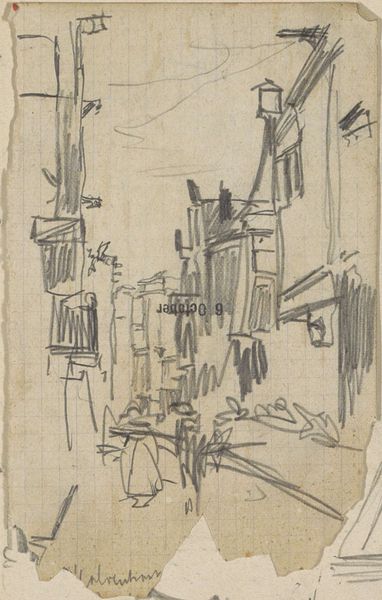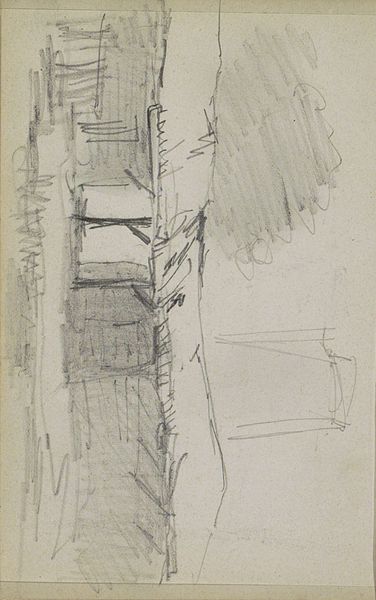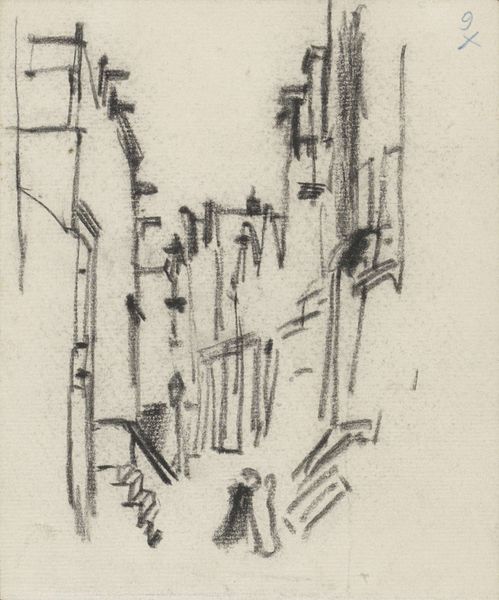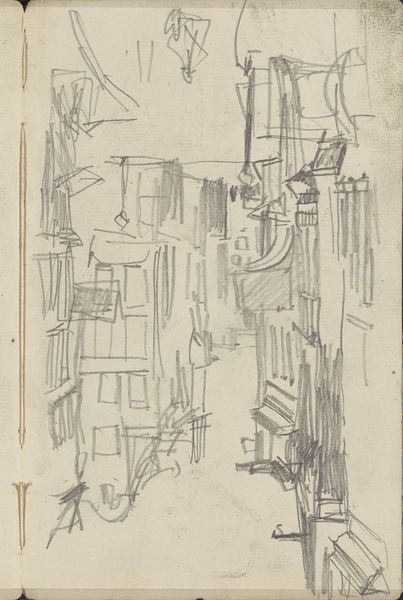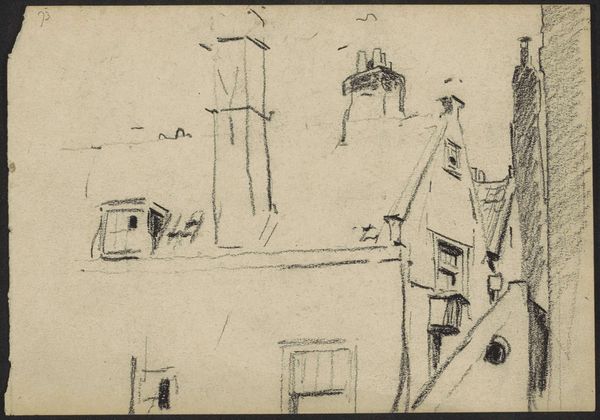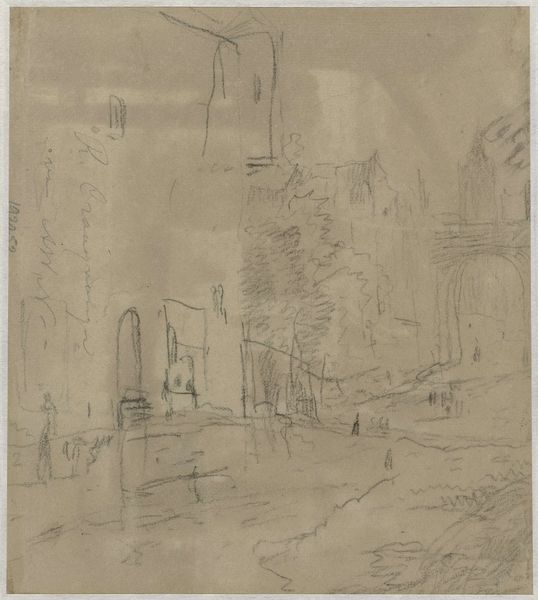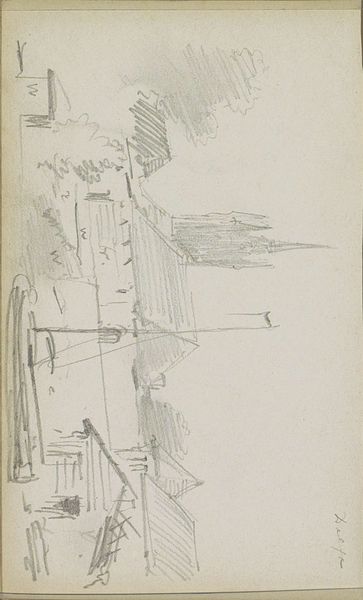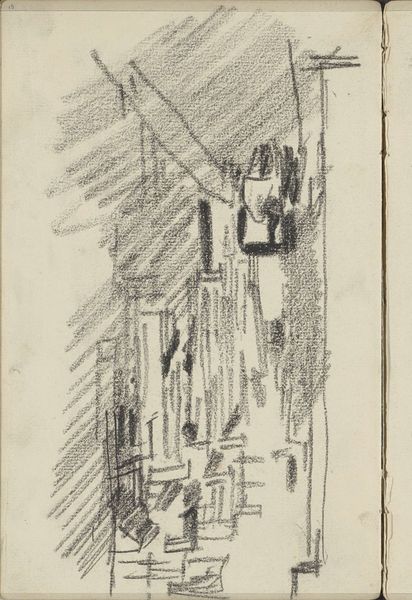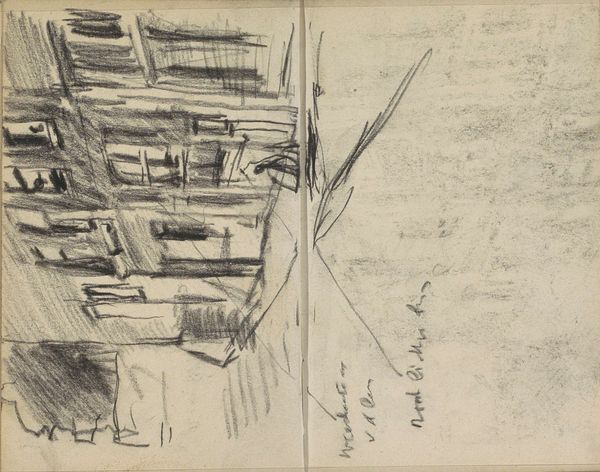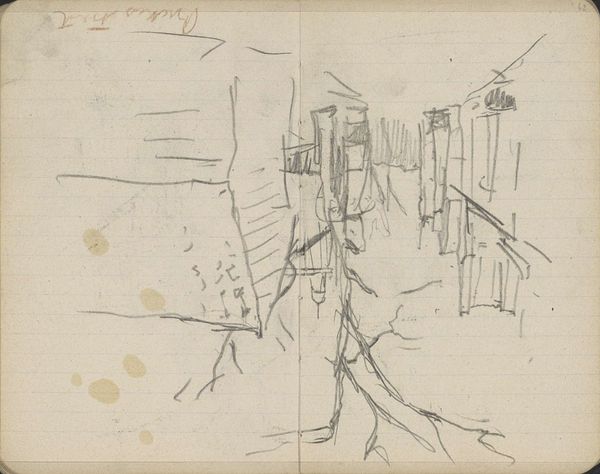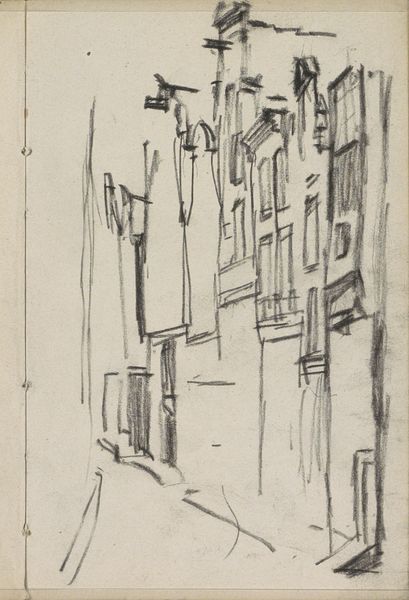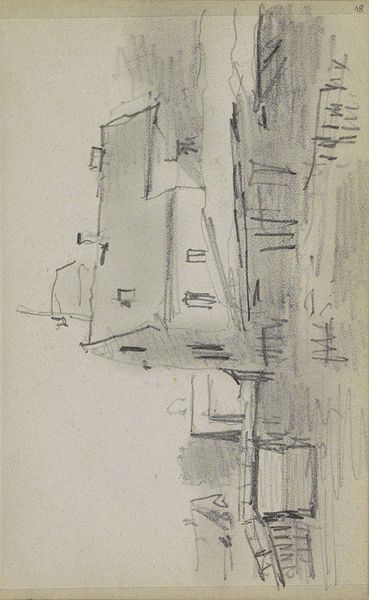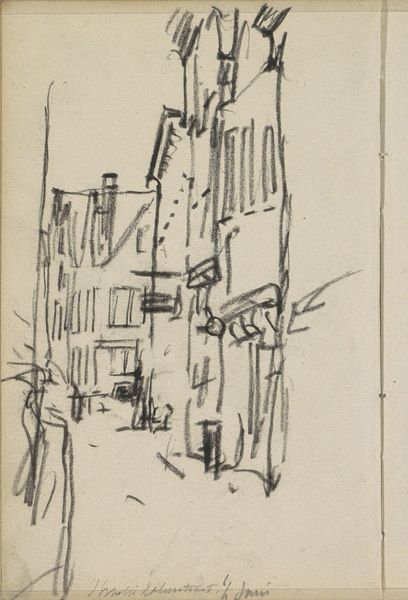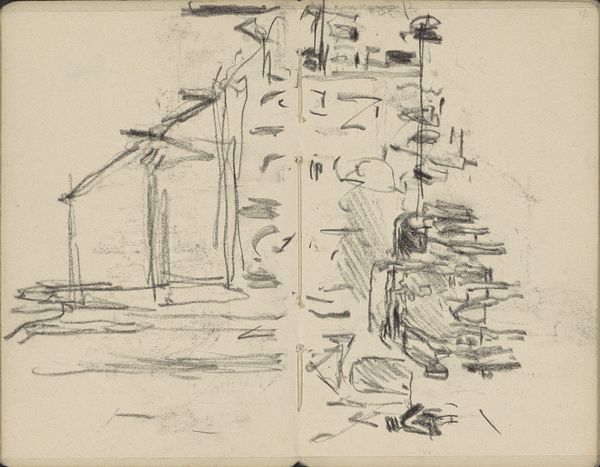
drawing, pencil, architecture
#
architectural sketch
#
drawing
#
pen sketch
#
landscape
#
etching
#
romanticism
#
pen-ink sketch
#
pencil
#
sketchbook drawing
#
architecture
Dimensions: height 121 mm, width 193 mm
Copyright: Rijks Museum: Open Domain
Curator: Right, let's dive into this compelling sketch. Here we have "Huizen met trap", or "Houses with Stairs," created around 1827 by Auguste Raffet. The materials are listed as pencil on paper. It now resides in the collection of the Rijksmuseum. Editor: My first thought? Ethereal melancholy. Those lines, so light and yet they create such a dense feeling. It’s almost dreamlike. I imagine Raffet, notebook in hand, just capturing a fleeting moment, perhaps the memory of a place more than the actual place itself. Curator: I agree. What strikes me is the raw simplicity. There's a directness of method on display—evident marks, a tangible trace of Raffet's hand. Consider the implications of pencil as the chosen medium, it signals accessibility, a certain ease of reproduction in the growing printmaking industry. Was this sketch intended for something larger, more permanent? Editor: Could be, although I find beauty in this immediacy, almost as a sort of personal reflection rather than commercial pursuit. Look at the tentative lines outlining those steps! There is this sense of the incomplete and evolving nature of things, how our perceptions continuously morph, right? The romantic sentiment. Curator: Precisely. This resonates profoundly with the artistic context of the Romantic era. Raffet utilizes sketching—traditionally preparatory—as a mode of finished artistic expression. Moreover, note how this choice reflects a democritization in art production, broadening notions of artistry beyond formal academic conventions to encompass works on paper by an artist from outside those structures. Editor: Absolutely. It also creates a sense of intimacy. I mean, there’s a whole story hinted at, and one has to fill in those blank spaces. Who lived there? Where did that staircase lead? Raffet hands the imagination to the viewer. I also think of how a simple choice in materials brings us closer. Everyone has touched a pencil. Curator: True. The very ephemerality of pencil—its susceptibility to smudging, erasure—speaks volumes. In a time preoccupied with industrial replication, Raffet implicitly foregrounds originality. "Houses with Stairs" isn’t merely a drawing; it’s evidence of a single, unrepeatable artistic gesture. Editor: Beautifully said. So, in its apparent simplicity, there’s a complex web of ideas, isn't it? Materiality, memory, the poetics of line and how we each make it resonate. Curator: Yes. Ultimately it compels us to question conventional classifications around the art-making process. Raffet blurs it all by making a raw drawing of everyday architectural objects into a window towards emotional romanticism.
Comments
No comments
Be the first to comment and join the conversation on the ultimate creative platform.
